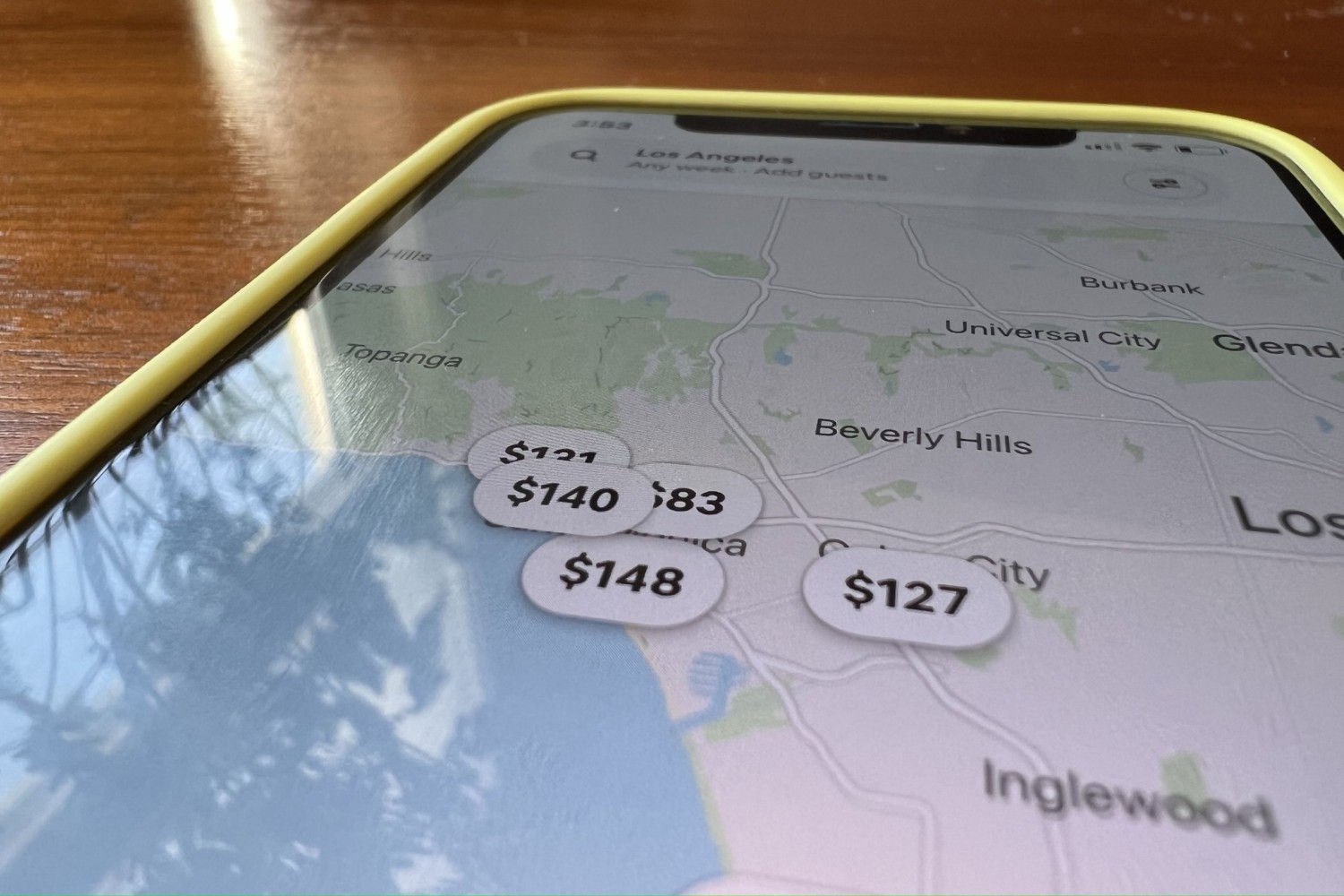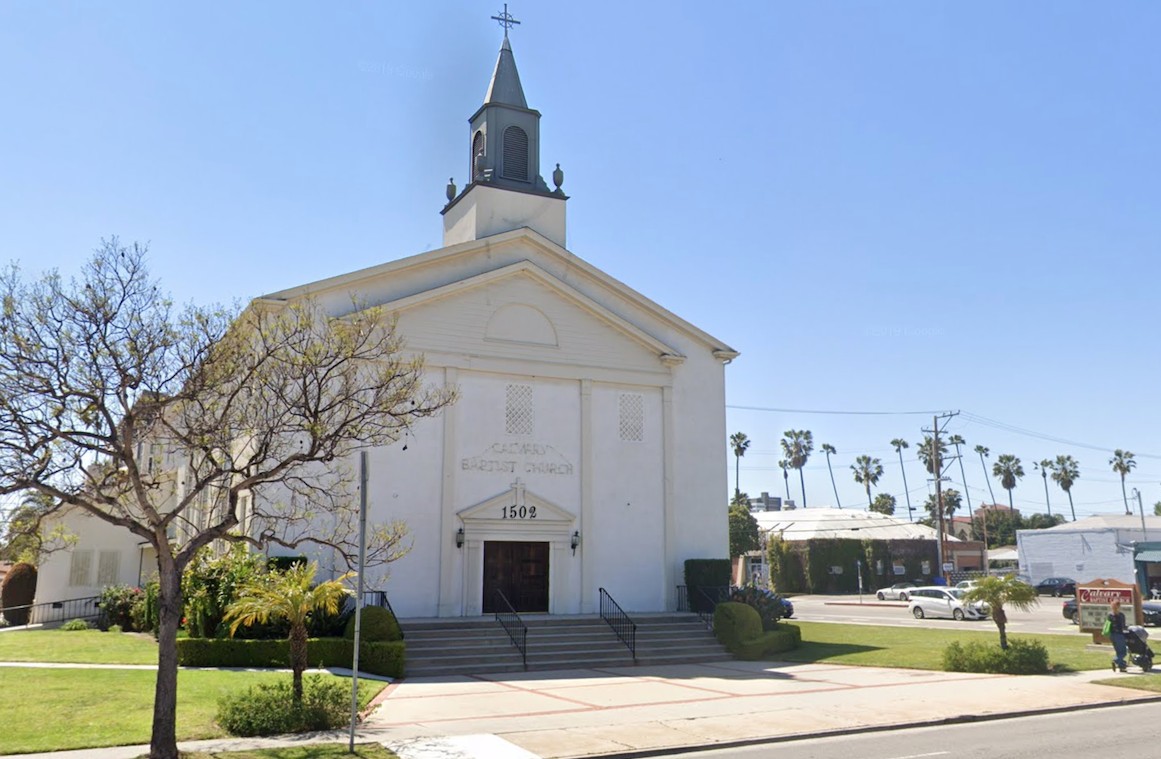Better Neighbors LA report highlights the inadequacies of enforcement measures for short-term rentals in Los Angeles, calling for increased regulation
By Dolores Quintana
According to a report released by Better Neighbors LA, the regulation of STR or short-term rentals facilitated by such companies as Airbnb, VRBO, Vacasa, Atraveo and others is failing after the passage of the City of Los Angeles’ Home Sharing Ordinance in November of 2019.
The ordinance reads, “Hosts and Hosting Platforms are expected to comply with the ordinance beginning on November 1. Anyone engaging in home-sharing must include a valid registration number in the rental listing. Anyone engaging in or advertising short-term rental activity that does not comply with the Home-Sharing Ordinance may be subject to daily fines.”
Better Neighbors LA’s report found that enforcement of the ordinance has dropped significantly in 2022. The report showed that there was a 54% decrease in warning letters, an 85% decrease in fines and a 25% increase in non-compliant listings identified by Granicus, which is a contracting service that monitors the 60 short-term rental companies operating in the city and sends reports to city government.
The report also found that in 2022, an average of 4,272 monthly STRs were advertised on the 60 monitored platforms. More than half of those rentals did not comply with the Home Sharing Ordinance. From the 2,228 non-compliant monthly listings found by Granicus, the City only fined or sent warning letters to around 64 of those hosts per month. This means that the system was allowing about two-thirds of violators to operate while flouting the law.
Even more disturbing are the events that took place on January 28, 2023, when three people lost their lives and four more were wounded outside of an STR at 2799 Ellison Street in Benedict Canyon. These weren’t the only STRs that were involved in violent acts. There were two shootings at SRTs in Encino and Studio City in 2022.
The Better Neighbors LA report found that the STR in Benedict Canyon had multiple violations of the HSO including the fact that it was an unregistered unit. BNLA was unable to find records for the STR at 2799 Ellison and the websites where the property was listed for rental did not have the legally required registration number.
Additionally, BNLA’s research of Airbnb data shows that 2799 Ellison was not a primary residence and that the listed host of the property named “Joy” had 17 other properties listed in the Los Angeles area and was not the owner of the property. Neighbors reported that the home was frequently used as a sublet or rental. The real owner of the home is a family trust registered in the state of Florida. This is in direct violation of the HSO.
Yet another issue was that the address listed on the STR sites was a fake address in West Hollywood rather than the actual address in Benedict Canyon so that the people behind the rental could circumvent HSO rules. BNLA refers to this as a bait-and-switch tactic.
BNLA Spokesperson, Allison Kirste stated, “This failure to enforce the HSO is endangering city residents and guests. The city has the tools to shut down party house rentals like the one in Benedict Canyon and lets them continue without regard for the consequences.”
One of the other issues that STRs cause is the tendency for owners to want to force tenants out to be able to rent the property for exorbitant amounts thus decreasing the amount of available affordable housing in Los Angeles and making the current crisis even worse.
We spoke with Allison Kriste, a representative of Better Neighbors Los Angeles about this issue.
DMQ: Could you explain to me what makes a rental illegal?
AK: There are several different stipulations of the city’s home-sharing ordinance that all aim to keep track of how many short-term rentals exist, as well as ensure that no one person is operating several and taking up housing to do so. Things that would make a short-term rental illegal include not being registered with the city, and all hosts having to submit registration documents attesting that the short-term rental is their primary residence where they live for more than half a year. Also if they have permission to do this if they are not the homeowner. In addition, rent-stabilized units may not be used as short-term rentals. If the building is RSO, or subject to the rent stabilization ordinance, they’re not permitted to be used for short-term rentals. Hosts may not operate more than one and it can only be out of your primary residence, so you can’t have multiple primary residences. Hosts that are operating several short-term rentals are also in violation. In the city of Santa Monica, short-term rentals must be hosted, which means that the person who is the host must be living on-site during the duration of the stay, and that is a way for the city to ensure that in addition to being used as tourist accommodation, these units are also being used as housing.
DMQ: This sounds like a good stipulation that Santa Monica has set up.
AK: We’ve been advocating for that kind of standard or rigor for short-term rental ordinances in other cities that we’ve been trying to assist with passing their own. The hosted stipulation, or ensuring that the host is, has to be on-site for this day, is one of the best ways that we’ve found to ensure that these units aren’t being taken off the housing market.
DMQ: That’s the critical point. What you trying to avoid a situation where say a large private equity company comes in, buys up a lot of property, and then just uses it as home-sharing rentals?
AK: Exactly. We’ve talked to residents of the city who say, “I live in an eight-unit apartment building, seven of the eight units are short-term rentals, and I’m the only real tenant left.” That’s seven units that can be used for families, young professionals, and residents of the city. It really is disappointing to see that kind of affordable housing being taken up in that way.
DMQ: Can you give me an overview of what the report says?
AK: Every year we put out an annual report that gives a snapshot of how enforcement is going in the city of Los Angeles, how many short-term rentals exist, and how that’s changed from the prior year. This year, we’ve found that non-compliance is up. We found a high rate of non-compliance across the boards in the city of Los Angeles. In addition, we’ve also found that enforcement activity is down. We’re identifying more non-compliant listings, as compared to last year. The city is issuing fewer warning letters, they’re issuing fewer fines. They’re not doing a whole lot.
DMQ: So basically the trouble is that when they don’t enforce the rules, then the law has no teeth. The people who are disobeying the law are just going to continue flouting the law?
AK: Absolutely.
DMQ: So are there any concrete steps that BNLA and residents of the city can take to help the city government realize that they do need to enforce? I think that this isn’t the only issue where there’s like, some disconnect between the city, you know, the laws on the books and a lack of enforcement, shall we say, because, you know, they make a point of enforcing things that give the city money, particularly from people who are maybe like at lower levels of the economic strata parking. Giving out tickets for people with RVs or giving tickets for street cleaning, doesn’t even happen all that often. What do you propose to help get them to actually enforce this type of thing?
AK: I think the first and most important one for us is that the city should start to issue fines to those hosts and platforms, for violation of the home-sharing ordinance. As of right now, no citations have ever been issued to home-sharing platforms for violations of the law. But the city is authorized to charge daily fines against the platform for a little upwards of $1,000 for each transaction of a non-compliant unit. Realistically, that could translate into hundreds of thousands of dollars that the city could be generating in fines against the short-term rental platforms daily because their users aren’t following the law.
Short-term rental platforms don’t have a lot of incentive to enforce the HSO because they are not having to pay the costs that should be associated with non-compliance. We think that if the City were to issue fines and initiate lawsuits against the platforms that could be an effective way to ensure compliance. Last year, the former City Attorney initiated a lawsuit against the platform VRBO regarding data sharing and that could lead to a better rate of compliance from these companies.
DMQ: So you feel that the solution would be the city actually enforcing laws on the books? Anything else?
AK: We have a couple of other recommendations that would require an amendment to the home-sharing ordinance. One of them is that they have platforms enter a mandatory data-sharing agreement. Right now, every short-term rental platform is required to submit all of their monthly booking information to the city. Airbnb has entered into a data-sharing agreement where they use an API to share real-time information. Similar agreements with every other platform, we think could enable the city to ultimately collect more data on non-compliant listings and give a better understanding of the landscape which would empower them to better enforce the HSO.
DMQ: Is there anything else that you would like to say as a representative of BNLA that you think our readers should know?
AK: I think that short-term rentals as they become a very popular way to find accommodation when you’re traveling, I think a lot of visitors and guests who use the short-term rentals don’t understand or consider the cost to communities associated with these rentals. STRs often cause a loss of housing and an increase in rents in neighborhoods and cities that they’re in. But they also fundamentally alter the fabric of the neighborhood, they displace long-standing residents. Our mission, in addition to ensuring that home sharing is happening in a way that’s sustainable for neighborhoods, and protecting residents, is also to show people that in addition to the inconveniences that may be caused by fees on STRs that these rentals have this other side of them that damages neighborhoods and communities and most importantly, displaces residents. Enforcing laws that dictate the rules around SRTs, it’s one of the best ways to ensure that housing is protected.
DMQ: Could you describe how short-term rentals displace people in a neighborhood or city?
AK: There are a lot of economic impacts of short-term rentals. McGill University’s Professor David Wachsmuth examines the economic impact of short-term rentals in Los Angeles in a report on the subject. He estimates that short-term rentals have raised the rent by an average of $810 per year for each rental unit in the city since 2015. As they contribute to gentrification, if rent goes up $810 per year that is definitely enough to push somebody who might be on the edge into homelessness. We do see that as the rent goes up, these people, longstanding members of the community can no longer afford to live in their building. Landlords often know that they stand to make more money using these units as short-term rentals, as they do when they rent them out to long-term tenants. It’s really hard to compete with that as a tenant, or resident of a neighborhood when you can’t offer that same amount of profit.













